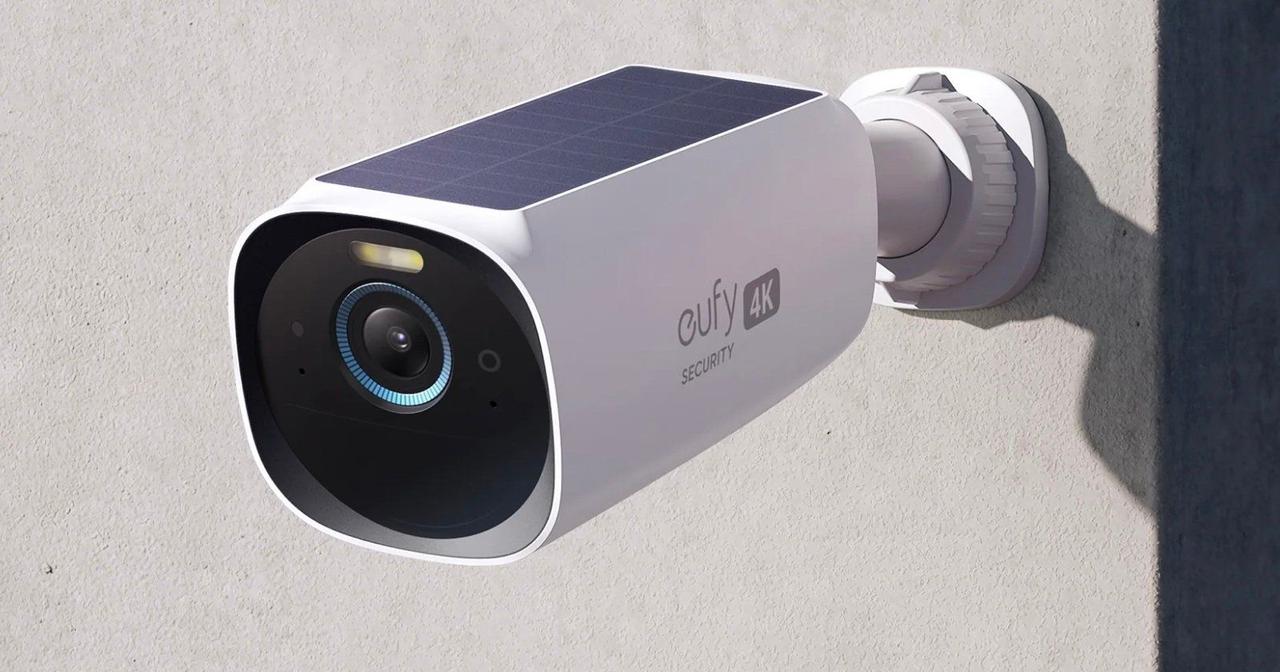Eufy's Controversial $2 Video Campaign: AI Training or Privacy Concern?
3 Sources
3 Sources
[1]
Eufy Offered $2 Payments for Real or Staged Package-Theft Footage
Smart security camera company Eufy offered owners of its products $2 to submit videos it could use to train its artificial intelligence software in a campaign that ran last winter. As reported early by TechCrunch, Eufy launched a promotion to collect 20,000 videos of package thefts and 20,000 videos of people pulling on car doors. For the purposes of the campaign, it didn't matter if the videos were real or if owners staged the videos. The concept of services directly paying customers for data or content that will be used to train AI software is still fairly uncommon. Recently, a popular app called Neon offered to pay people for recordings of their phone calls that it would then sell to AI companies. That app is currently on hold while the company addresses security issues, but the company's founder said it will return soon. Eufy did not immediately respond to a request for comment on the campaign. AI companies are continually seeking new sources of data to train their AI models. In this case, Eufy, which is owned by the tech company Anker, appeared to be working on improving its own software to detect on-camera incidents of package thefts and attempted car thefts or carjackings. According to a community posting, Eufy was seeking a maximum of 10 videos from any one device for each of the two activities for a maximum of $20 payout per device. The campaign ran from Dec. 18, 2024 to Feb. 25, 2025. In the past few years, Eufy has had a few security missteps, including a flaw that uploaded local videos online without permission to cloud servers and one that exposed private videos to strangers.
[2]
Anker Paid Eufy Camera Users $2 Per Video to Train AI
Anker -- the Chinese company that produces Eufy security cameras -- offered users money in exchange for their videos of package and car thefts, whether real or staged, to train its AI systems. Earlier this year, Eufy ran a promotion aimed at collecting 20,000 videos of package thefts and 20,000 videos showing people attempting to open car doors, according to a report by TechCrunch. The company offered $2 per video to users who submitted such content, with the stated goal of improving its AI camera system's ability to detect theft. For the campaign, Eufy said it did not matter whether the videos depicted genuine incidents or were staged by the users themselves. "To ensure we have enough data, we are looking for videos of both real and staged events, to help train the AI what to be on the lookout for," Eufy wrote on its website. "You can even create events by pretending to be a thief and donate those events. You can complete this quickly. Maybe one act can be captured by your two outdoor cameras simultaneously, making it efficient and easy. If you also stage a car door theft, you might earn $80." Eufy also emphasized that "the data collected from these staged events is used solely for training our AI algorithms and not for any other purposes." A community posting noted that Eufy limited submissions to a maximum of 10 videos per device for each activity, meaning users could earn up to $20 per device. The campaign ran from December 18, 2024, to February 25, 2025. TechCrunch says its requests for comment to Eufy, including inquiries on participation numbers, total payments, video collection, and post-training deletion, received no response. However, according to comments on the campaign's announcement page, more than 120 users said they participated in it. Directly paying users for content to train AI still remains relatively uncommon. Eufy's initiative illustrates that companies are willing to compensate customers for data they consider valuable for AI development. While the approach allows users to potentially gain financial benefit from their own content, TechCrunch says that there could potentially be security and privacy risks associated with such campaigns. The news outlet reports that Neon, a viral calling app that paid users for sharing recordings and transcripts of their calls, contained a security flaw that allowed access to other users' data. The app went offline after being notified of the issue.
[3]
Eufy offered customers $2 per video to train its theft detection AI
Anker's Eufy security camera division launched a data collection campaign that offered customers $2 per video to help train its artificial intelligence systems for theft detection. The initiative sought to gather thousands of videos of both real and staged theft scenarios. Running from December 18, 2024, to February 25, 2025, the program aimed to collect 20,000 videos each of package and car theft. Customers could participate by uploading videos through a Google Form and providing their PayPal account details for payment. Eufy explicitly encouraged users to submit staged events, with its website suggesting they "create events by pretending to be a thief and donate those events." This created scenarios where a user could potentially earn up to $80 by staging multiple theft attempts captured by different cameras simultaneously. According to user comments, more than 120 people participated in the program. Following the initial campaign, Eufy has introduced other video donation initiatives. The current in-app program offers non-monetary rewards, from digital "Apprentice Medals" to physical gifts like cameras and gift cards. An "Honor Wall" within the app ranks users by their contributions, with the top donor having submitted 201,531 videos. The company states that all donated videos, including those from other devices like baby monitors, are used exclusively for AI training and will not be provided to third parties. This data collection approach reflects a broader trend of tech companies using user-generated content to improve their AI models. However, Eufy's privacy record has previously drawn scrutiny. In 2023, The Verge reported that the company's claims of end-to-end encryption were misleading, as camera streams were unencrypted when accessed through its web portal. Anker later acknowledged the issue and committed to fixing it. The video donation program highlights the ongoing tension between user privacy and the tech industry's demand for data to drive innovation. While financial incentives can encourage participation, they also raise important questions about consent and the long-term implications of sharing personal video content.
Share
Share
Copy Link
Eufy, owned by Anker, offered users $2 per video of real or staged package thefts and car break-ins to train its AI. The campaign raises questions about data collection practices and privacy in the smart security industry.
Eufy's Controversial Data Collection Campaign
Eufy, a smart security camera company owned by Chinese tech giant Anker, has sparked controversy with its recent data collection campaign. The company offered users $2 per video submission to help train its artificial intelligence software, specifically targeting footage of package thefts and attempted car break-ins
1
.
Source: PetaPixel
Campaign Details and User Participation
The campaign, which ran from December 18, 2024, to February 25, 2025, aimed to collect 20,000 videos each of package thefts and car door tampering
2
. Notably, Eufy explicitly stated that both real and staged videos were acceptable for submission. Users could earn up to $20 per device by submitting a maximum of 10 videos for each activity1
.Eufy's website encouraged users to create staged events, suggesting, "You can even create events by pretending to be a thief and donate those events"
2
. This approach allowed participants to potentially earn up to $80 by staging multiple theft attempts captured simultaneously by different cameras3
.AI Training and Data Usage
The primary goal of this initiative was to improve Eufy's AI camera system's ability to detect theft incidents. The company emphasized that the collected data would be used solely for training their AI algorithms and not for any other purposes
2
. This campaign reflects a growing trend in the tech industry, where companies seek new sources of data to enhance their AI models1
.
Source: CNET
Privacy Concerns and Past Issues
While the campaign offers financial incentives to users, it also raises important questions about privacy and data security. Eufy has faced scrutiny in the past for security missteps, including a flaw that uploaded local videos to cloud servers without permission and another that exposed private videos to strangers
1
.In 2023, The Verge reported that Eufy's claims of end-to-end encryption were misleading, as camera streams were unencrypted when accessed through its web portal. Anker later acknowledged this issue and committed to addressing it
3
.Related Stories
Ongoing Data Collection Efforts
Following the initial campaign, Eufy has introduced other video donation initiatives. The current in-app program offers non-monetary rewards, ranging from digital "Apprentice Medals" to physical gifts like cameras and gift cards. An "Honor Wall" within the app ranks users by their contributions, with the top donor having submitted an impressive 201,531 videos
3
.Industry Implications and Ethical Considerations
Eufy's approach to data collection highlights the ongoing tension between user privacy and the tech industry's demand for data to drive innovation. While financial incentives can encourage participation, they also raise important questions about consent and the long-term implications of sharing personal video content
3
.As AI continues to play a crucial role in smart security systems, the industry must grapple with finding ethical ways to improve their technologies while respecting user privacy and maintaining transparency about data usage.
References
Summarized by
Navi
Related Stories
Recent Highlights
1
Google Gemini 3.1 Pro doubles reasoning score, beats rivals in key AI benchmarks
Technology

2
Meta strikes up to $100 billion AI chips deal with AMD, could acquire 10% stake in chipmaker
Technology

3
Pentagon threatens Anthropic with supply chain risk label over AI safeguards for military use
Policy and Regulation








